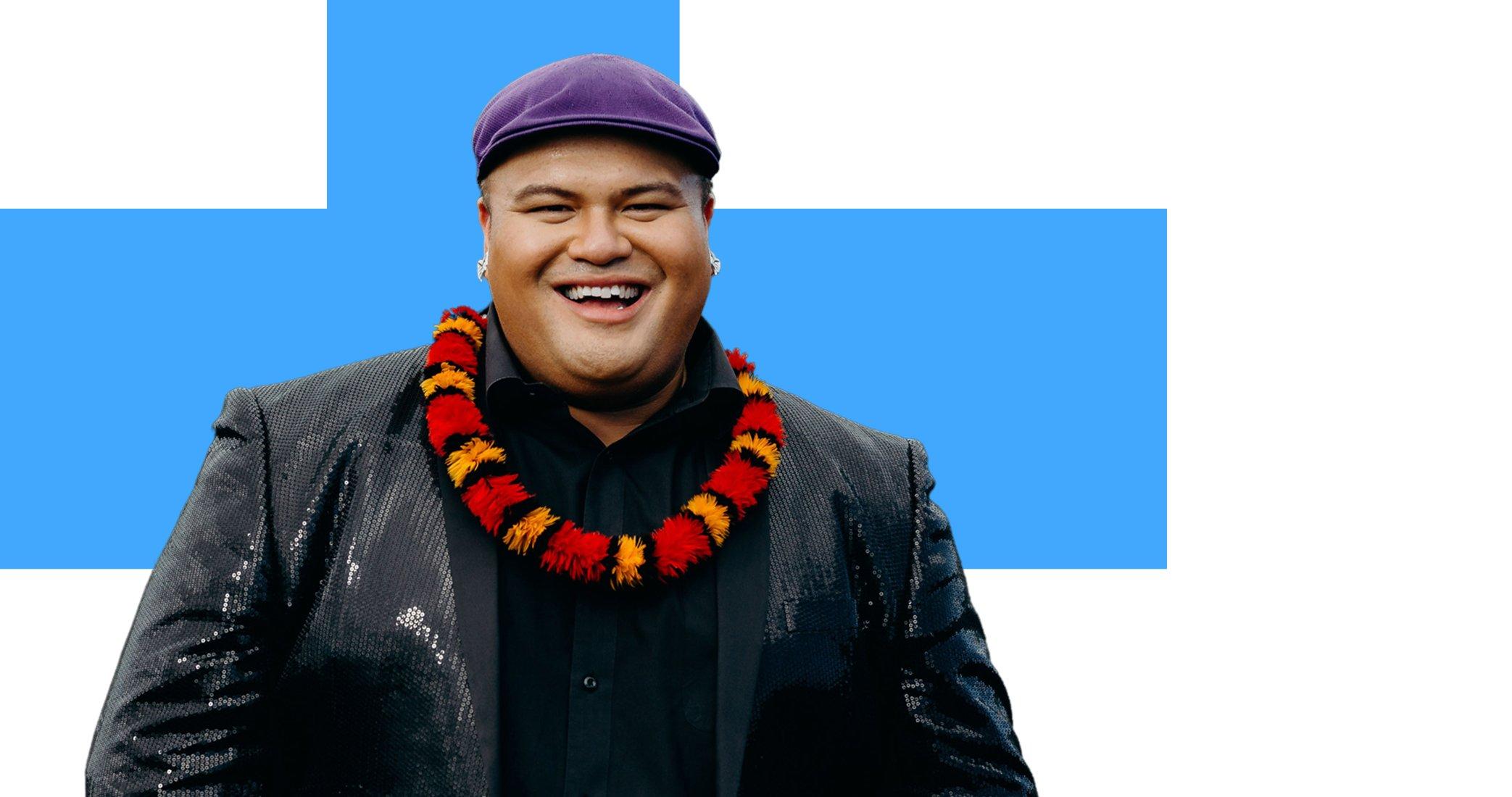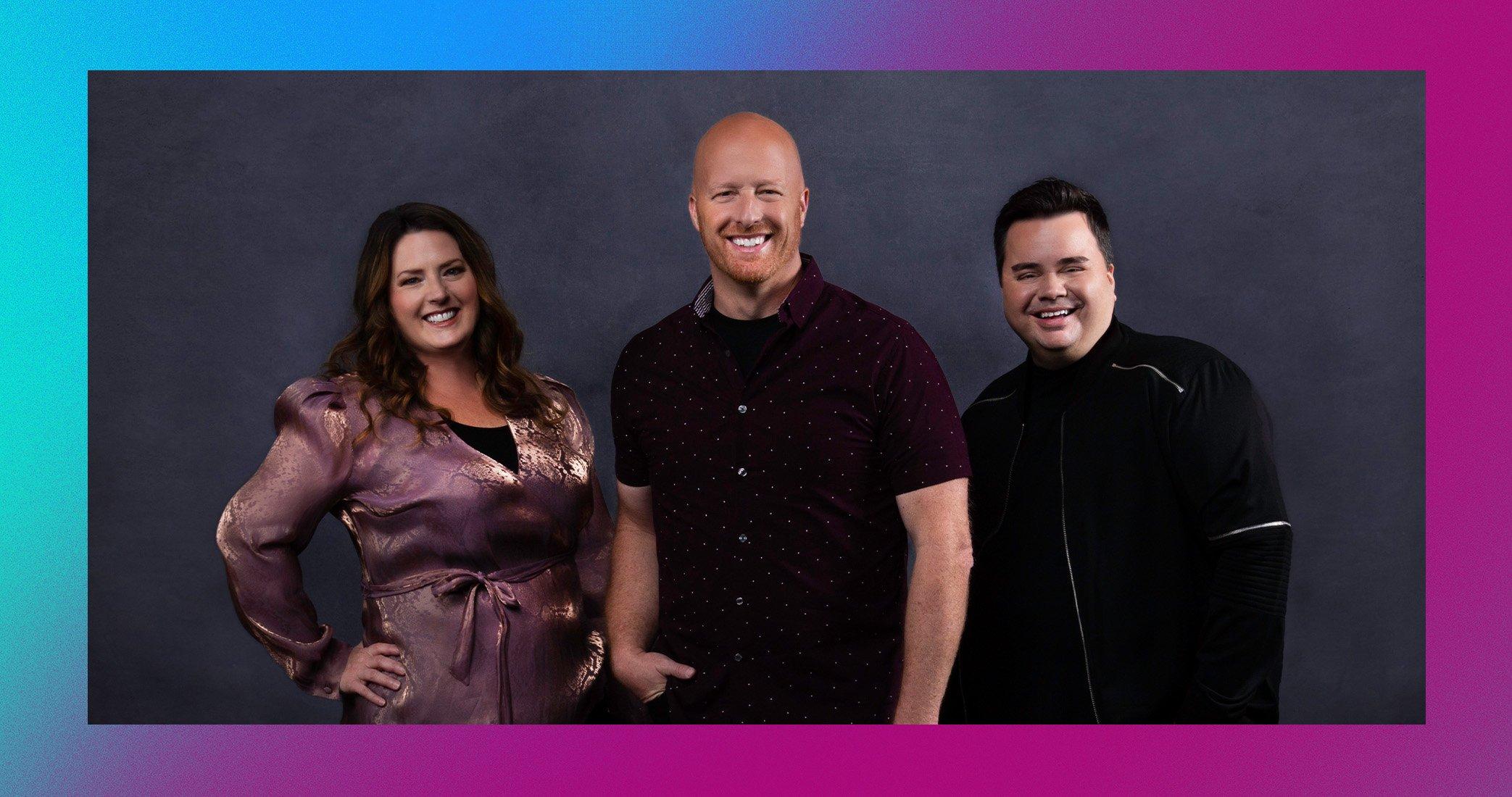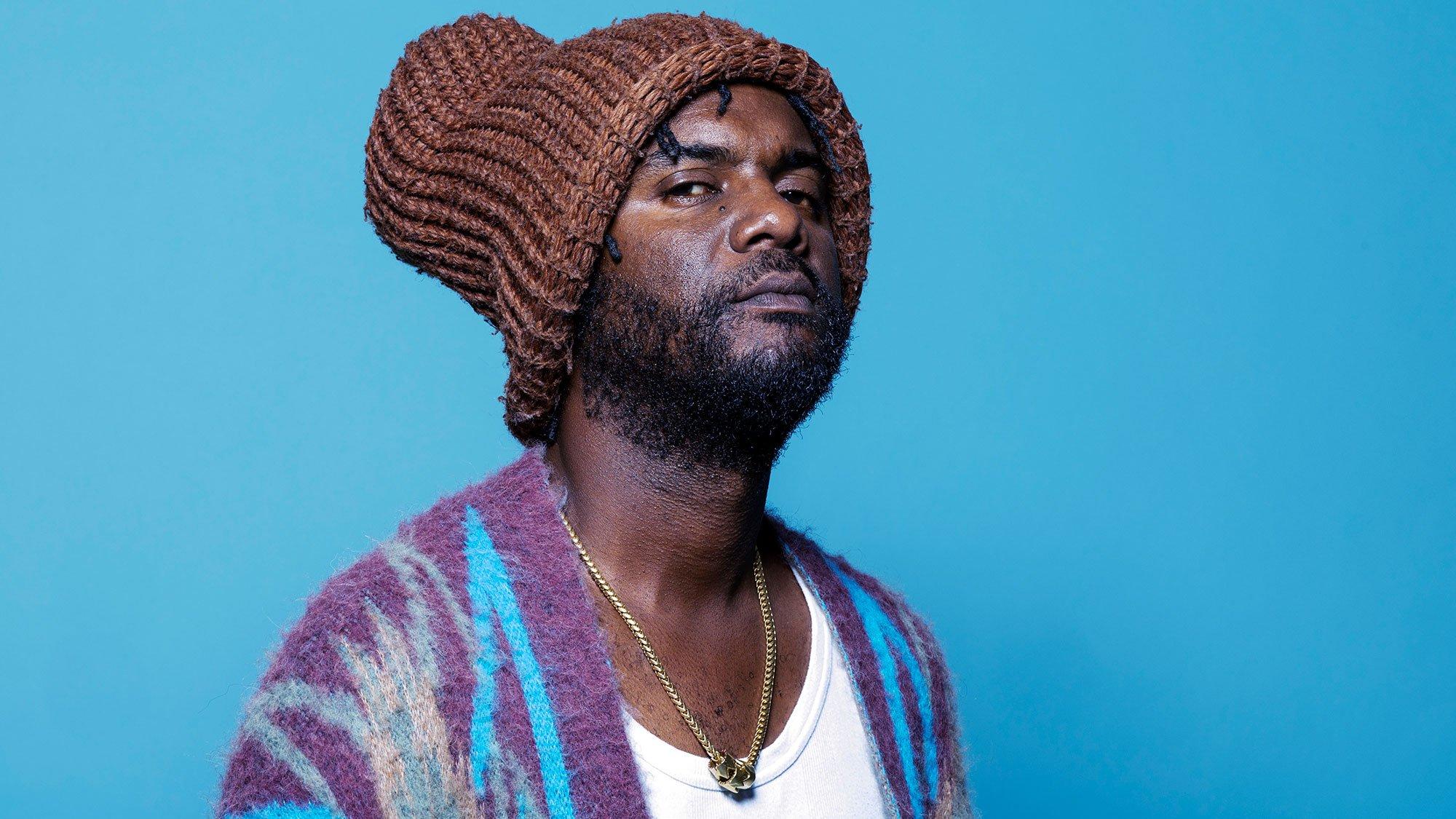Stevie Wonder once said "you can’t base your life on people’s expectations." It’s something guitarist and singer Gary Clark, Jr. has taken to heart as he’s built his own career.
"You’ve got to find your own thing," Clark tells GRAMMY.com.
Clark recently duetted with Wonder on "What About The Children," a song on his forthcoming album. Out March 22, JPEG RAW sees Clark continue to evolve with a mixtape-like kaleidoscope of sounds.
Over the years, Clark has ventured into rock, R&B, hip-hop blues, soul, and country. JPEG RAW is the next step in Clark's eclectic sound and sensibility, the result of a free-flowing jam session held during COVID-19 lockdown. Clark and his bandmates found freedom in not having a set path, adding elements of traditional African music and chants, electronic music, and jazz into the milieu.
"We just kind of took it upon ourselves to find our own way and inspire ourselves," says Clark, a four-time GRAMMY winner. "And that was just putting our heads together and making music that we collectively felt was good and we liked, music we wanted to listen to again."
The creation process was simultaneously freeing and scary.
"It was a little of the unknown and then a sense of hope, but also after there was acceptance and then it was freeing. I was like, all right, well, I guess we’re just doing this," Clark recalls. "It was an emotional, mental rollercoaster at that time, but it was great to have these guys to navigate through it and create something in the midst of it."
JPEG RAW is also deeply personal, with lyrics reflecting on the future for Clark himself, his family, and others around the globe. While Clark has long reflected on political and social uncertainties, his new release widens the lens. Songs like "Habits" examine a universal humanity in his desire to avoid bad habits, while "Maktub" details life's common struggles and hopes.
Clark and his band were aided in their pursuit by longtime collaborator and co-producer Jacob Sciba and a wide array of collaborators. Clark’s prolific streak of collaborations continued, with the album also featuring funk master George Clinton, electronic R&B/alt-pop artist Naala, session trumpeter Keyon Harrold, and Clark’s sisters Shanan, Shawn, and Savannah. He also sampled songs by Thelonious Monk and Sonny Boy Williamson.
Clark has also remained busy as an actor (he played American blues legend Arthur "Big Boy" Crudup in Baz Luhrmann’s Elvis) and as a music ambassador (he was the Music Director for the 23rd Annual Mark Twain Prize for American Humor).
GRAMMY.com recently caught up with Clark, who will kick off his U.S. tour May 8, about his inspirations for JPEG RAW, collaborating with legendary musicians, and how creating music for a film helped give him a boost of confidence in the studio.
This interview has been edited for clarity.
You incorporated traditional African music on JPEG RAW. How did it affect your songwriting process?
Well, I think traveling is how it affected my songwriting process. I was over in London, and we played a show with Songhoy Blues, and I was immediately influenced. I was like, "dang, these are my musical brothers from all the way across the world."
I always kind of listened to West African funk and all that kind of stuff. So, I was just listening to that in the studio, and just kind of started messing around with the thing. And that just kind of evolved from there. I was later told by Jacob Sciba that he was playing that music trying to brainwash me into leaning more in that direction. I thought we were just genuinely having a good time exploring music together, and he was trying to manipulate me. [Laughs.]
I quit caring about what people thought about me wanting to be a certain thing. I think that being compared to Jimi Hendrix is a blessing and a curse for me because I'm not that. I will never be that. I never wanted to imitate or copy that, no disrespect.
You’ve got to find your own thing. And my own thing is incorporating all the styles of music that I love, that I grew up on, and [was] influenced by as a pre-teen/teenager. To stay in one space and just be content doing that has never been my personality ever…I do what I like.
I read that you play trumpet at home and also have a set of bagpipes, just in case the mood strikes.
I used to go collect instruments and old cameras from thrift stores and vintage shops and flea markets. So, I saw some bagpipes and I just picked them up. I've got a couple of violins. I don't play well at all — if you could consider that even playing. I've got trumpet, saxophone, flutes, all kinds of stuff just in case I can use these instruments in a way that'll make me think differently about music. It'll inspire me to go in a different direction that I've maybe never explored before, or I can translate some of that into playing guitar.
One of my favorite guitarists, Albert Collins, was really inspired by horn players. So, if you can understand that and apply that to your number one instrument, maybe it could affect you.
Given recent discussions about advancements in AI and our general inundation with technology, the title of your album is very relevant. What about people seeing life through that filter concerns you? Why does the descriptor seem apt?
During the pandemic, since I wasn't out in the world, I was on my phone and the information I was getting was through whatever social media platforms and what was going on in certain news outlets, all the news outlets. I'm just paying attention and I'm just like, man, there's devastation.
I realized that I don't have to let it affect me. Just because things are accessible doesn't mean that you need to [access them]. It just made me think that I needed to do less of this and more of being appreciative of my world that's right in front of me, because right now it is really beautiful.
You’ve said the album plays out like a film, with a wide range of emotions throughout. What was it like seeing the album have that film-like quality?
I had conversations with the band, and I'd expressed to them that I want to be able to see it. I want to be able to see it on film, not just hear it. Keyboardist Jon Deas is great with [creating a] sonic palate and serving a mood along with [Eric] "King" Zapata who plays [rhythm] guitar. What he does with the guitar, it serves up a mood to you. You automatically see a color, you see a set design or something, and I just said, "Let's explore that. Let's make these things as dense as possible. Let's go like Hans Zimmer meets John Lee Hooker. Let's just make big songs that kind of tell some sort of a story."
Also, we were stuck to our own devices, so we had to use our imagination. There was time, there was no schedule. So, we were free, open space, blank canvas.
The album opens with "Maktub," which is the Arabic word for fate or destiny. How has looking at different traditions given you added clarity with looking at what's happening here in the U.S.?
I was sitting in the studio with Jacob Sciba and my friend Sama'an Ashrawi and we were talking about the history of the blues. And then we started talking about the real history of the blues, not just in its American form, in an evolution back to Africa. You listen to a song like "Maktub," and then you listen to a song like, "Baby What You Want Me to Do" by Jimmy Reed….
The last record was This Land, but what about the whole world? What about not just focusing on this, but what else is going on out there? And we drew from these influences. We talked about family, we talked about culture, we talked about tradition, we talked about everything. And it's like, let's make it inclusive, build the people up. Let's build ourselves up. It’s not just about your small world, it’s about everybody’s feelings. Sometimes they're dealt with injustice and devastation everywhere, but there's also this global sense of hope. So, I just wanted to have a song that had the sentiment of that.
I really enjoyed the song’s hopeful message of trying to move forward.
Obviously, things are a little bit funky around here, and I don't have any answers. But maybe if we got our heads together and brainstorm, we could all figure something out instead of … struggling or suffering in silence. It's like, let's find some light here.
But part of the talks that I had with Sama'an and his parents over a [video] call was music. He’s from Palestine, and growing up music was a way to connect. Music was a way to find happiness in a place where that wasn't an everyday convenience, and that was really powerful. That music is what brought folks together and brought joy and built a community and a common way of thinking globally. They were listening to music from all over the world, American music, rock music, and that was an influence.
The final song on the album, "Habits," sounds like it was the most challenging song to put together. What did you learn from putting that song together?
Well, that song originally was a bunch of different pieces, and I thought that they were different songs, and I was singing the different parts to them, and then I decided to put them all together. I think I was afraid to put them all together because we were like, "let's not do these long self-indulgent pieces of music. Let's keep it cool." But once I put these parts together and put these lyrics together, it just kind of made sense.
I got emotional when I was singing it, and I was like, This is part of using this as an outlet for the things that are going on in life. We went and recorded it in Nashville with Mike Elizondo and his amazing crew, and it's like, yep, we're doing it all nine minutes of it.
You collaborated with a bunch of musicians on this album, including Naala on "This Is Who We Are." What was that experience like?
Working with Naala was great. That song was following me around for a couple of years, and I knew what I wanted it to sound like, but I didn't know how I was going to sing it. I had already laid the musical bed, and I think it was one of the last songs that we recorded vocals on for the album.
Lyrically, it’s like a knight in shining armor or a samurai, and there's fire and there's war, and this guy's got to go find something. It was like this medieval fairytale type thing that I had in my head. Naala really helped lyrically guide me in a way that told that story, but was a little more personal and a little more vulnerable. I was about to give up on that song until she showed up in the studio.
"What About the Children" is based on a demo that you got from Stevie Wonder. You got to duet with him, what was that collaboration like?
Oh, it was great. It was a life-changing experience. The guy's the greatest in everything, he was sweet, the most talented, hardworking, gracious, humble, but strong human being I've been in a room with and been able to create with.
I was in shock when I left the studio at how powerful that was and how game changing and eye-opening it was. It was educational and inspiring. It was like before Stevie and after Stevie.
I imagine it was also extra special getting to have your sisters on the album.
Absolutely. We got to sing with Stevie Wonder; we used to grow up listening to George Clinton. They've stuck with us throughout my whole life. So, to be able to work with him and George Clinton — they came in wanting to do the work, hardworking, badass, nice, funny — it was a dream.
Stevie Wonder and George Clinton are just different. They're pioneers and risk takers. For a young Black kid from Texas to see that and then later to be able to be in a room with that and get direct education and conversation…. It's an experience that not everybody gets to experience, and I'm grateful that I did, and hopefully we can do it again.
In 2022, you acted in Elvis. What are the biggest things you've learned from expanding into new creative areas?
I really have to give it up to a guy named Jeremy Grody…I went to his studio with these terrible demos that I had done on Pro Tools…and this guy helped save them and recreate them. I realized the importance of quality recordings. Jeremy Grody was my introduction to the game and really set me up to have the confidence to be able to step in rooms like that again.
I played some songs in the film, and I really understood how long a film day was. It takes all day long, a lot of takes, a lot of lights, a lot of big crews, big production.
I got to meet Lou Reed [while screening the film] at the San Sebastian Film Festival, and I was super nervous in interviews. I was giving away the whole movie. And Lou Reed said, "Just relax and have fun with all this s—." I really appreciated that.
Do you have a dream role?
I don't have a dream role, but I do know that if I was to get into acting, I’d really dive into it. I would want to do things that are challenging. I like taking risks. I want to push it to the limit. I would really like to understand what it's like to immerse yourself in the character and in the script and do it for real.
You're about to go out on tour. How will the show and production on this tour compare with the past ones?
We're building it currently, but I'm excited about what we got in store as far as the band goes. There are a few additions. I've got my sisters coming out with me. It's just going to be a big show.There's a new energy here, and I'm excited to share that with folks.
The Black Crowes' Long Flight To New Album 'Happiness Bastards': Side Projects, Cooled Nerves & A Brotherly Rapprochement





